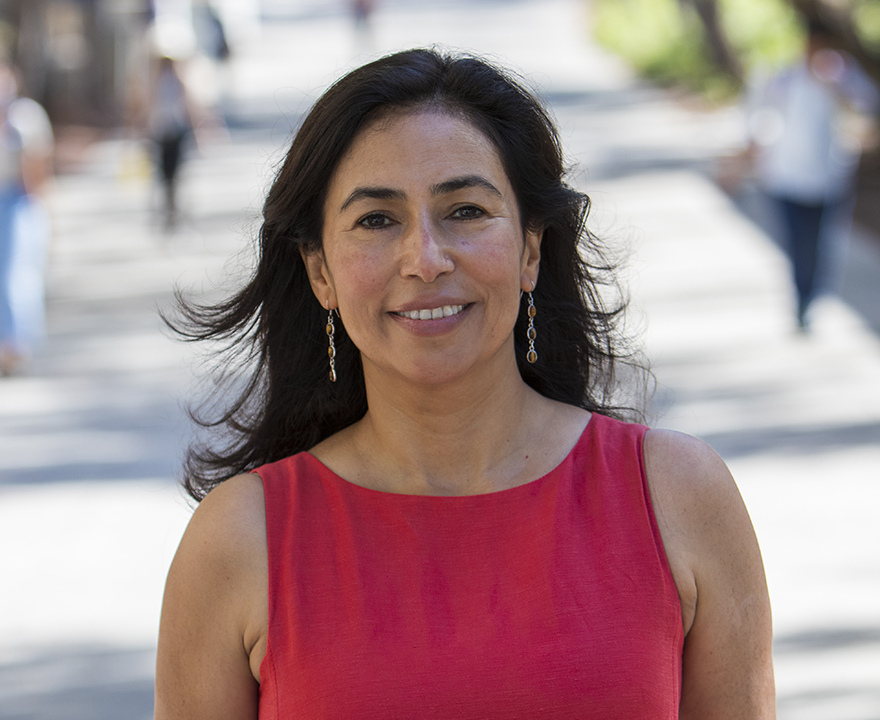UCI-led study finds ethnicity, race, and social class predict family interdependence

UCI-led study finds ethnicity, race, and social class predict family interdependence
- October 4, 2023
- Findings published in Cultural Diversity & Ethnic Minority Psychology
-----
Should family – immediate and/or extended - be involved in your important life decisions? How you answer that question may be informed in part by your ethnicity, race, and social class. A new UCI-led study finds cultural context, shaped by ethnicity, race, and socioeconomic status, is linked to how people think family relationships should function.
“It's been long understood that interdependence with family – a way of valuing family that emphasizes one’s obligations to family, thinking that family should be a first source of support, including family members in one’s meaningful life decisions, and putting family needs and preferences before the preferences of the self – is a core element of cultural collectivism and it is commonly observed among ethnic/racial minority groups in the U.S.," says senior corresponding author Belinda Campos, UCI professor and chair of Chicano/Latino studies and director of the Culture, Relationships and Health Lab.
“In contrast, European American culture is prototypical of cultural individualism. But it has also been suggested that socioeconomic status is relevant to interdependence with family; that family interdependence is an adaptation to the challenges of resource-scarce environments," she says.
When Campos and her research team tested cultural heritage and socioeconomic status together, they discovered that income interacted with race/ethnicity to predict interdependence with family. Specifically, they found that foreign-born Latino/a Americans, African Americans, lower income European Americans and lower income U.S.-born Latino/a Americans in the study felt that families should be close, mutually obligated to one another, and involve each other in important decisions.
Findings are published in the Cultural Diversity & Ethnic Minority Psychology journal.
To understand the degree to which these two forms of culture – ethnic/race heritage and socioeconomic status – impact family interdependence, the researchers made use of a racially diverse subset of data collected in the Community Child Health Network longitudinal study which studied the influences of stress and resilience on new parents and their babies across five major U.S. metropolitan areas. The researchers focused on questions related to social class – household income, years of education and a self-assessed 1-10 ranking of socioeconomic status – and familism, or interdependence with family, using responses to prompts about family bonds, reciprocity, and inclusion in decision-making.
The lead author of this study was Emily D. Hooker, UCI Ph.D. ’17, now a program officer in the Division of Behavioral and Social Research at the NIH National Institute on Aging. Additional researchers included Karina Corona, UCI Ph.D. ’19, postdoctoral fellow, Department of Population and Public Health Sciences, University of Southern California; Christine M. Guardino, assistant professor of psychology, Dickinson College; and Christine Dunkel Schetter, Distinguished Professor of psychology and psychiatry, UCLA.
Funding for this work was supported in part by the National Institute of Mental Health under grant T32MH15750, and the Eunice Kennedy Shriver National Institute of Child Health and Human Development under grant R01HD072021, and the John Templeton Foundation under grant 61280.
-Heather Ashbach, UCI Social Sciences
-----
Would you like to get more involved with the social sciences? Email us at communications@socsci.uci.edu to connect.
Share on:
Related News Items
- Careet RightEveryone's looking for a partner who has these 3 traits, according to research
- Careet RightSummer camp reunites siblings in foster care
- Careet RightUCI Podcast: How Latinos are shaping the future together
- Careet RightHow to fully appreciate your loving relationships
- Careet RightScientists study brains to understand the joy that's felt when caring for siblings


